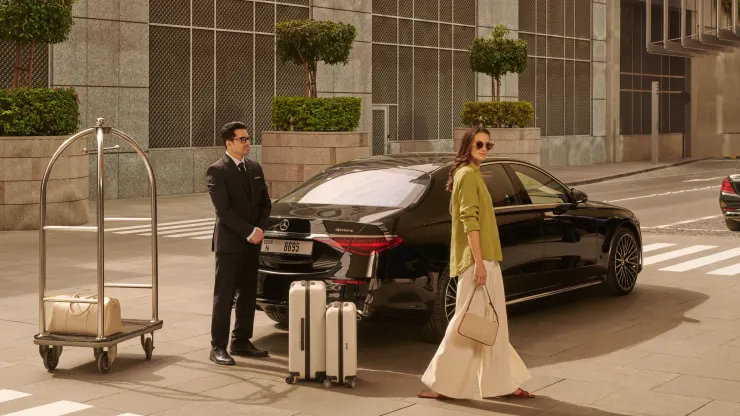
Wheely, the luxury-focused ride-hailing competitor to Uber, has set its sights on international expansion with its launch in Dubai. Founded by Anton Chirkunov, the service aims to cater primarily to wealthy clients, offering rides in upscale vehicles like the BMW 5 Series.
This move marks Wheely’s strategic decision to tap into Dubai’s status as a hub for affluent business people and digital nomads, positioning itself as a premium alternative in the competitive ride-hailing market.
The introduction of the BMW i5 electric variant in the future hints at Wheely’s commitment to sustainable and luxurious transportation solutions. By blending opulence with eco-consciousness, Wheely seeks to differentiate itself further in the market and attract environmentally-conscious high-end clientele.
Wheely’s entry into Dubai poses a significant challenge to Uber-owned Careem, which currently dominates the ride-hailing market in the city. With a focus on luxury positioning akin to Blacklane, Wheely aims to carve out a niche among discerning customers seeking personalized and top-tier transportation experiences.
The company offers premium services, including trained chauffeurs who provide tailored experiences to clients. Standard offerings encompass airport pickups, Wheely XL rides, and business-class travel in BMW 5 Series cars.
Additionally, Wheely provides exclusive members-only services that grant access to even more upscale tiers, featuring vehicles like the Mercedes-Benz S-Class. Despite facing challenges during the Covid-19 pandemic, including a notable drop in demand, Wheely has managed to achieve operational profitability in established markets.
However, expansion into new territories like Paris and Dubai has posed financial hurdles, prompting discreet internal fundraising efforts, which have totaled $43 million to date. Looking ahead, Wheely plans to expand its Middle East team and chauffeur network, aiming to grow to over 1,000 chauffeurs within the next three to five years.
Furthermore, the company eyes entry into the United States, with New York as a primary target market, leveraging its app features to offer seamless and luxurious transportation experiences to discerning travelers worldwide.
Also, see:
Apple stops selling some of its watches on website